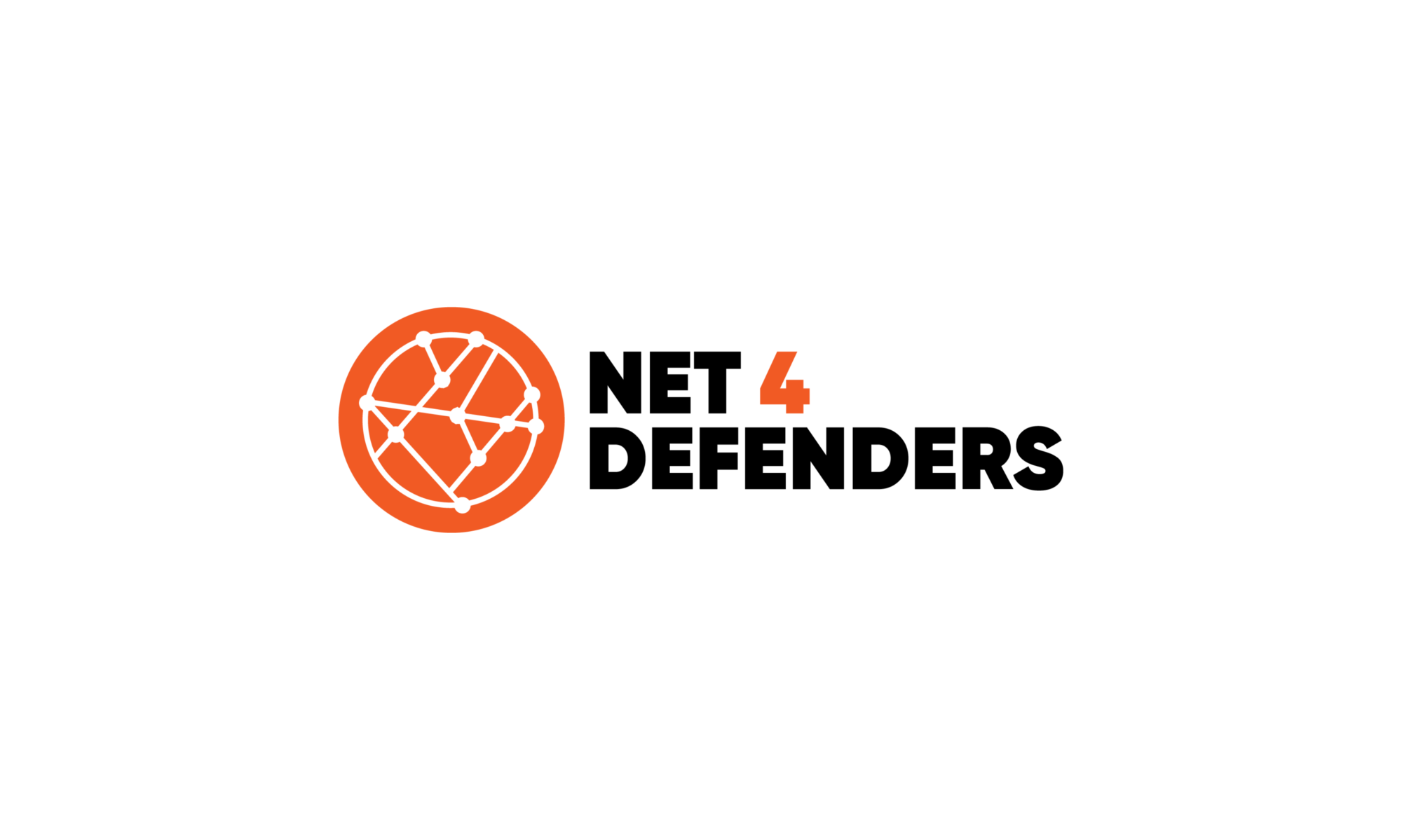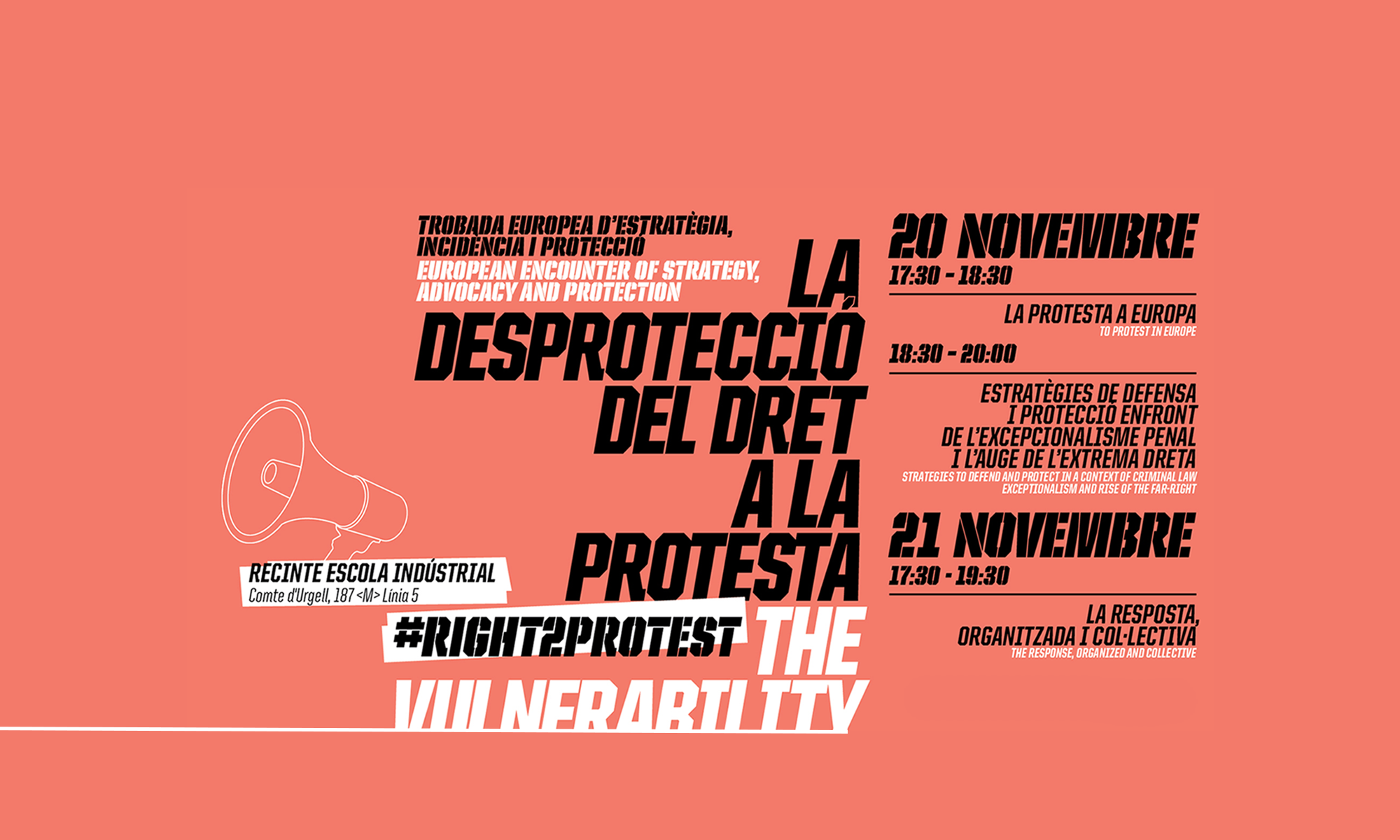The 20th and 21st of November 2019 different organizations that work within the framework of human rights protection were gathered in Barcelona to debate about the vulnerability of the right to protest.
On the first day there was a closed activity with the aim of connecting and facilitating the exchange of tools between different organizations that work for the protection of human rights. It was led by, on one hand, Claudia Nadal, who presented the Guide of mechanisms for the protection, guarantee and advocacy of the right to protest in front of the European Union and the European Council. On the other hand, by Tor Hodenfield, who exposed tools and mechanisms of his organization such as the Civicus Monitor. It was highlighted how important it is to improve the transnational coordination mechanisms between organizations that defend human rights.
The event opened to the general public started after lunch on the same day, and it included two panels. The first one, directed by Cristina Mas, a journalist in diari Ara, brought us the insights of the right to protest in Europe through the interventions of Giada Negri and Orsolya Reich. It was discussed, amongst other things, the regression of rights that is taking place in Europe and the importance of finding a common ground to develop European strategies to protect protest.
The second panel looked forward to sharing defense and protection strategies in the face of the penal exceptionalism and the rise of the extreme right that is being experienced. Conducted by María San Martín, from Front Line Defenders, it focused on the importance of coordinating and finding alliances between entities, as well as on integrating with social movements and becoming a part of them. The importance of educating in human rights and in the right to protest was also discussed, as well as the problem of police violence and their surveillance and, in some countries, the harassment that human rights defenders are suffering. Monitoring situations of protest through social networks and through the media was also identified as an important asset in order to claim a response from the institutions. The need to adopt a psychosocial approach also stood out.
The following day the last panel took place, which was conducted by Marcel Mauri, vice-president and spokesman of Omnium Cultural. The panel was aimed at debating about the collective response to the restrictions and violations of rights that had been exposed throughout the seminar. The importance of recognizing the value of social movements, non-violence strategies and new ways of resistance and organization was pointed out. Disobedience in all spaces, including in the private scope, as well as the role of care were also debated. It was also marked out that, when thinking of extending the response to repression, convincing people that their problems are not individual but social or politic is essential. In this sense, the need to adapt the human rights language to the average person was stressed. Overall, the need to improve the coordination and connection between movements, the understanding of the problems that are being experienced as a whole and as the defense of rights against a system was also urged.
With this panel we dismissed the seminar which became not only a space for learning and exchanging experiences but also a gathering of people full of hope and eagerness to build a better world. Because of it, we wish it will be the first of many initiatives to come within an European strategy.

